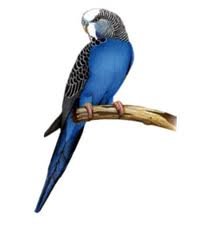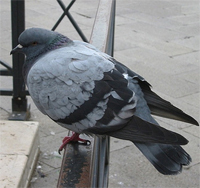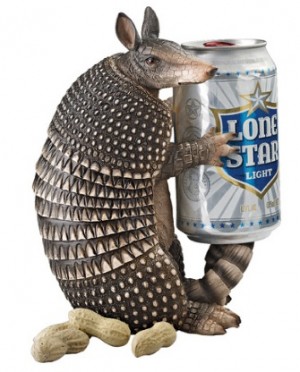Animals
Weird Costumes
With Halloween just around the corner, you might want to visit this site featuring odd costumes for inspiration. Although I do not believe they feature this Japanese outfit to the right, which I found elsewhere.
Posted By: Paul - Tue Oct 12, 2010 -
Comments (7)
Category: Animals, Costumes and Masks, Holidays, Genitals
les fêtes étranges

Posted By: Nethie - Sun Oct 10, 2010 -
Comments (2)
Category: Animals, Awards, Prizes, Competitions and Contests, Contests, Races and Other Competitions, Customs, Fairs, Amusement Parks, and Resorts, Magazines, Parades and Festivals
Proper Opossum Pedicure
Found by Selma Moss-Ward.
Posted By: Paul - Tue Sep 14, 2010 -
Comments (10)
Category: Animals, Hygiene, Reader Recommendation
A Murder Of… Budgies?

On the eve of the prestigious Cornwall Budgerigar Show, the aviary of Andrew Pooley, one of South England's top budgie breeders, was broken into and 21 of his best birds were stolen. Worse still, several birds were badly injured and one, reigning "best of breed" title holder Penmead Pride, had been killed. Stamped on by the callous intruders.
Because their distinctive markings would be instantly recognised among the close-knit budgie fancying community, the score of stolen budgies are unlikely to ever make another show appearance. And that might suit the culprit just fine, if his intention was to eliminate the competition by fair means or (can't resist, sorry) fowl. Pooley had left the shed unlocked briefly when he ran an errand to the nearby town of Camelford from his home in Delabole in Cornwall, and only noticed something was wrong at 9.45 that evening, when he came to make a final check on his prized birds and was - in an suitably Harrissian moment - startled by the silence of the budgies. Police are still investigating whether this is the work of a competitor but Mr. Pooley is in no doubt.
"The person or people who did this must have known exactly which ones to take because they only targeted my show team," he told reporters (Daily Mail).
Posted By: Dumbfounded - Thu Sep 09, 2010 -
Comments (17)
Category: Animals, Awards, Prizes, Competitions and Contests, Boredom, Contests, Races and Other Competitions, Crime, Hobbies and DIY, Obsessions
What A Way To Go

Posted By: Nethie - Sat Sep 04, 2010 -
Comments (4)
Category: Accidents, Animals, Death, Excrement, More Things To Worry About, Australia
Dillo Holder

Order yours here.
Posted By: Paul - Thu Aug 26, 2010 -
Comments (7)
Category: Animals, Domestic, Appliances, Ineptness, Crudity, Talentlessness, Kitsch, and Bad Art, Alcohol
They’ve Gone Squirrely
It's not enough for BrewDog to make the world's strongest beer (55% APV), but to serve it up in Squirrels is a novel idea. (PETA will hate it, of course.)The End of History from BrewDog on Vimeo
Posted By: Nethie - Fri Jul 23, 2010 -
Comments (7)
Category: Animals, Food, World Records, Alcohol
Weird Science – Invention Is The Mother Of Necessity
Build a better mousetrap, it is said, and the world will beat a path to your door. The implication being that there are some problems which are just crying out for a solution. And then there are the solutions crying out for a problem - those inventions that, while inspired, are just a tad “out there”. It is this later category I shall be celebrating today.First up, how clean is your cow? This age old problem has nagged at the minds of farmers down the ages, are their cows clean enough? And why isn’t there an easier way to clean cows? Well these merchants of the soil need worry no more thanks to a Swedish company that has developed the fully automated “cow wash”. Supposedly improving the health and yield of cows that use it, the cow wash uses a free swinging revolving brush to groom the cows while simultaneously stimulating their circulation. Apparently the cows enjoy using it and the makers DeLaval have sold over 30,000 in Sweden alone (Daily Mail).
Bigwigs in the US military will also soon be able to sleep sounder in the knowledge that the men under their command are safely in their underpants. We’re not just talking about any undies though, these have been specially designed by University of California professor Joseph Wang. Not only will his techno-trunks monitor the vitals of the personnel wearing them, they can even administer painkillers or antibiotics as the situation demands (Post Chronicle).
And if your pants don’t save you, at least your modesty will be preserved when you are taken to hospital, all thanks to the University of Montreal. For it is from that fine establishment’s School of Industrial Design that our next invention hails, a hospital gown that isn’t quite so revealing. The DUO gown is the brainchild of Noemie Marquis and Denyse Roy and consists of two overlapping panels, front and back, that is easy to put on and requires no fasteners making life simpler for both patients and staff (Medical News Today).
Meanwhile British scientists have been working on an altogether sterner cover. Nicknamed “bullet-proof custard” by its inventors, Bristol based BAE systems have developed a liquid armour consisting of layers of Kevlar combined with a secret “shear-thickening” liquid that hardens as force is applied. The company’s eventual aim is to produce lighter, more-flexible body armour for the military (BBC News).
More in extended >>
Posted By: Dumbfounded - Thu Jul 22, 2010 -
Comments (9)
Category: Animals, Farming, Bicycles and Other Human-powered Vehicles, Futurism, Hospitals, Inventions, Robots, Science, Technology, Underwear
La Tour Véreuse
La tour véreuse from MiQ on Vimeo.
Posted By: Paul - Tue Jul 06, 2010 -
Comments (6)
Category: Animals, Cartoons, Europe, Eating
Weird Science – From Whales To Sails

Sperm whales are still the largest animal ever to have teeth, but today their diet consists mostly of squid – including the infamous giant squid – and therein lies a problem. Whereas most land dwelling creatures live on plant material, or some juicy meaty derivative thereof, and hence are essentially “carbon-neutral”, marine animals from penguins to whales feast upon carbon that was probably sequestered in the oceans hundreds if not thousands of years ago, or has weathered out of rocks that are millions of years old. One upshot of this is that carbon dating is notoriously inaccurate on marine organisms, what scientists call the “reservoir effect”, another is that unlike water breathers such as fish, who return this carbon to the oceans, air breathing animals like whales will release this carbon to the atmosphere as CO2 and so contribute to global warming. However in new research published by the Royal Society of London, researchers have calculated that whales have actually offset their carbon emissions with emissions of another kind. Whale poop is iron rich and comparatively liquid, hence returns the excess iron in the whale’s diet back to the oceans in a form that is readily usable by phytoplankton. The team, led by Trish Lavery of Flinders University in Australia, estimate that sperm whales are responsible for removing 200,000 more tonnes of carbon from the atmosphere annually than they actually emit (Royal Society).
But it’s not all good news for the tree-huggers for while whales might be a boon in the fight against climate change, their free-range, organic farming practices of preference are almost certainly not. In a paper published by the National Academy of Sciences, Jennifer Burney of Stanford University and her colleagues have found that intensive farming is by far the most land and carbon efficient method of agriculture. Because agricultural land use is a major contributor to global warming, increasing the yields from farmland, and thereby reducing the amount of land farmed, strongly outweighed the extra carbon emissions of the intensive farming needed to achieve this. Doing the sums on farm outputs since 1961, the team found that increased yields have produced the same as cultivating an additional area the size of Russia at 1961 levels, which would have led to the release of 590 billion more tonnes of CO2, equal to about a third of all man-made emissions since the industrial revolution (PNAS).
And modern farming may be coming to our rescue in another way, as a source of cheap batteries. Almost since Ben Franklin gave up kite-flying, kids in schools the world over have been making batteries out of apples or a potatoes. Now a trio of researchers from the Hebrew University of Jerusalem, led by Alex Goldberg, have found a way to turn these vegetable power sources from classroom curiosities into a viable product. What’s more amazing is the method they discovered to generate a tenfold increase the output of their potato power-pack, they boil the potato first. How did no-one think of this before (AIP)?
Another new idea, albeit a less welcome one, is that one should prosecute scientists for not knowing everything. At least that seems to be the approach taken by the public prosecutors of the Italian city of L’Aquilla, which last year was hit unexpectedly by an earthquake that killed over 300 people and injured 1600 more. The defendants include the head of Italy’s National Institute of Geophysics and the director of the National Earthquake Center along with four other equally prominent scientists and Bernardo De Bernardinis then deputy head of the Civil Protection Agency, who together are looking at being tried for manslaughter for not alerting the population to the imminent disaster at a meeting held one week before the quake struck. It was Bernardinis, a government official, who claimed in a press conference held immediately after the meeting that the scientists had said there was “no danger”, despite the minutes of the meeting clearly showing that at no time was the chance of a major shock ever ruled out (Nature).
More in extended >>
Posted By: Dumbfounded - Fri Jul 02, 2010 -
Comments (7)
Category: Agriculture, Animals, Dinosaurs and Other Extinct Creatures, Farming, Disasters, Exercise and Fitness, Food, Government, Health, Nature, Natural Resources, Science, Psychology, Excrement

| Who We Are |
|---|
| Alex Boese Alex is the creator and curator of the Museum of Hoaxes. He's also the author of various weird, non-fiction, science-themed books such as Elephants on Acid and Psychedelic Apes. Paul Di Filippo Paul has been paid to put weird ideas into fictional form for over thirty years, in his career as a noted science fiction writer. He has recently begun blogging on many curious topics with three fellow writers at The Inferior 4+1. Contact Us |





